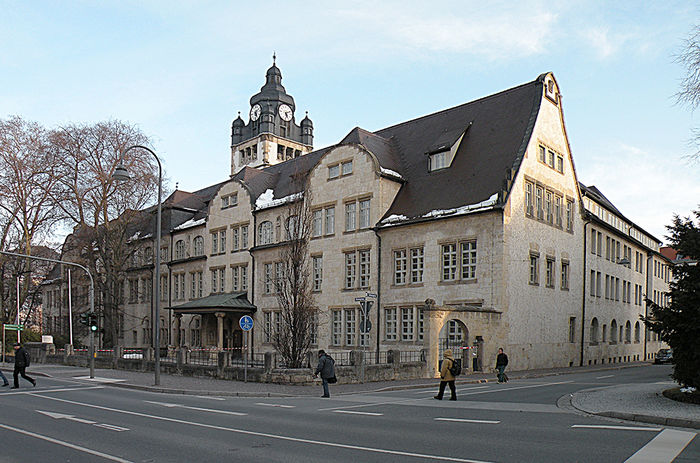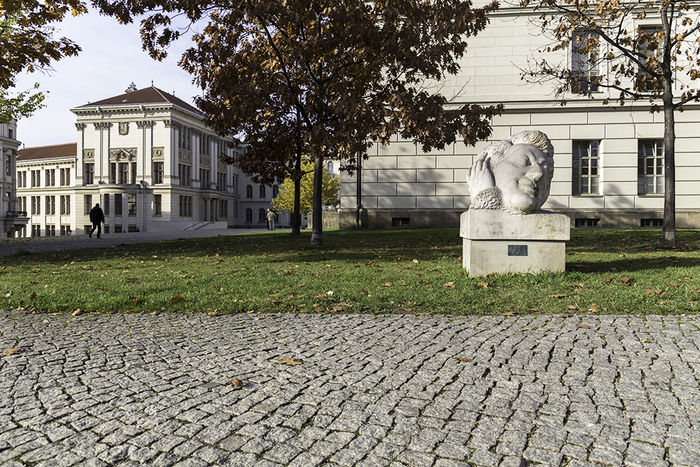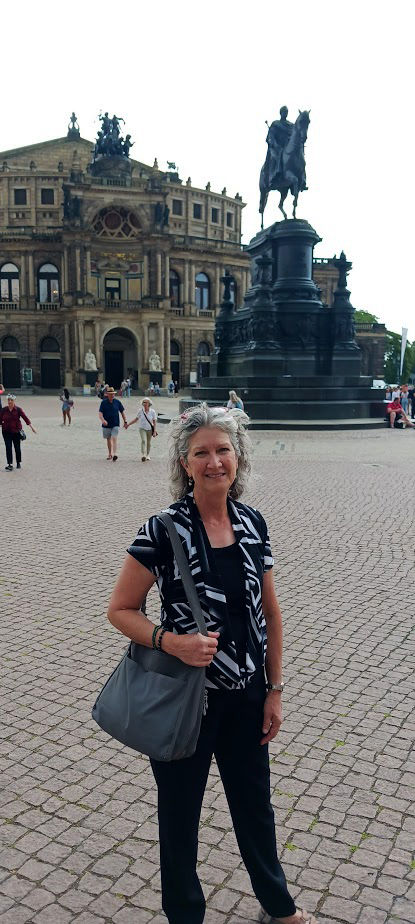

This dialog contains the full navigation menu for this site.

Sandy Petrulionis just really loves Germany. She’s lived there, she’s visited there, she’s delivered lectures there, and thanks to the Fulbright Program, she’s twice had the opportunity to teach at universities there.
The Fulbright Program is the United States government’s flagship international educational exchange program. Fulbright awards are prestigious and competitive fellowships that foster international learning and cooperation through education.
Petrulionis is a Distinguished Professor of English and American studies at Penn State Altoona. In both instances of her Fulbright awards, the main draw was the chance to teach what she loves and knows most about to different sets of students in another country.
“These opportunities let me share the passion that I have for 19th-century literary studies, especially reform movements, and a few specific authors with a group of students who are interested from day one.”
In 2010, Petrulionis was a Fulbright senior lecturer at Friedrich Schiller University in Jena, Germany, where she taught two classes: one graduate seminar in the American Studies program and one survey course on American literature. Students were mostly German, but others were from countries including Ukraine, China, Spain, and Italy.

University Main Building, Jena, Germany
Higher education is a bit different in Germany—there are no general education requirements, so students enrolled in those courses were already in their majors and had a keen interest in the topics Petrulionis was covering.
“There are so many things about what I teach that I regard as significantly interesting and unique, so to be able to transfer that information to a different audience is just really cool. They’re interested, they’re curious, and they ask analytical questions. Their awareness of other systems and governments leads them to appreciate things about American literature and history that some of us take for granted. That's been inspiring to see.”
One of her favorite memories from Friedrich Schiller University is the time she was schooled by one of her students. Class that particular day was about a pre-Civil War event in which a proslavery U.S congressman attacked an antislavery U.S. senator with his cane nearly killing him. After class a young man from China approached Petrulionis and asked her if she knew that the accosted senator recuperated in Cresson, Pennsylvania, about 20 minutes from Altoona. The student knew this because he had made a study of the senator and the incident at an earlier point in his education.
“I was flabbergasted. It’s a story I know well and have taught 100 times; you think you know everything there is to say about it, and then there you are learning in a classroom in Germany from a young guy from China. It was just astonishing, and not an experience I expected to happen.”
Petrulionis’s most recent Fulbright trip was this past summer when she spent six weeks as a Fulbright specialist at Martin Luther University in Halle, Germany.

Martin-Luther Universität Halle-Wittenberg
Specialist recipients are selected based on academic and professional achievement, demonstrated leadership in their field, and the potential to foster long-term cooperation between institutions in the United States and abroad.
While at Martin Luther University, Petrulionis co-taught an undergraduate course in 19th-century American women's reform movements that she developed with a colleague from the university.
“We had some of the best-known authors and readings on the syllabus, but we also came up with figures we were sure students had never heard of and readings they wouldn't be familiar with. It made for good conversation and comparison in class.

Petrulionis outside of the Dresden Opera House this past summer in Halle, Germany.
Petrulionis also delivered the annual Muhlenberg Lecture at the Muhlenberg Center for American Studies and gave invited talks at German universities in Bayreuth, Erfurt, and Dresden.
The opportunity to interact with students and colleagues from universities and colleges across the globe is one of the many things Petrulionis appreciates about the Fulbright program. She’s also heartened that German institutions continue to emphasize the humanities, thus providing an outlet for classes that relate to the interests and passions she shares with her students on both sides of the Atlantic.
Petrulionis uses her experiences abroad to improve her teaching at Penn State Altoona. “I find that I come back with more enthusiasm. Teaching in another country keeps me on my toes and makes me more careful, more thoughtful, whether it's for my classes or my research or personally.”
She would love to apply for a Fulbright again in the future, possibly in Ukraine when the country’s universities begin to rebuild from the devastation of the ongoing war with Russia. But for now, she’s satisfied with and proud of the two fellowships she was awarded.
“It’s something in my career that I consider an achievement. It’s gratifying and it’s validation that what I love doing is, and continues to be, important.”


